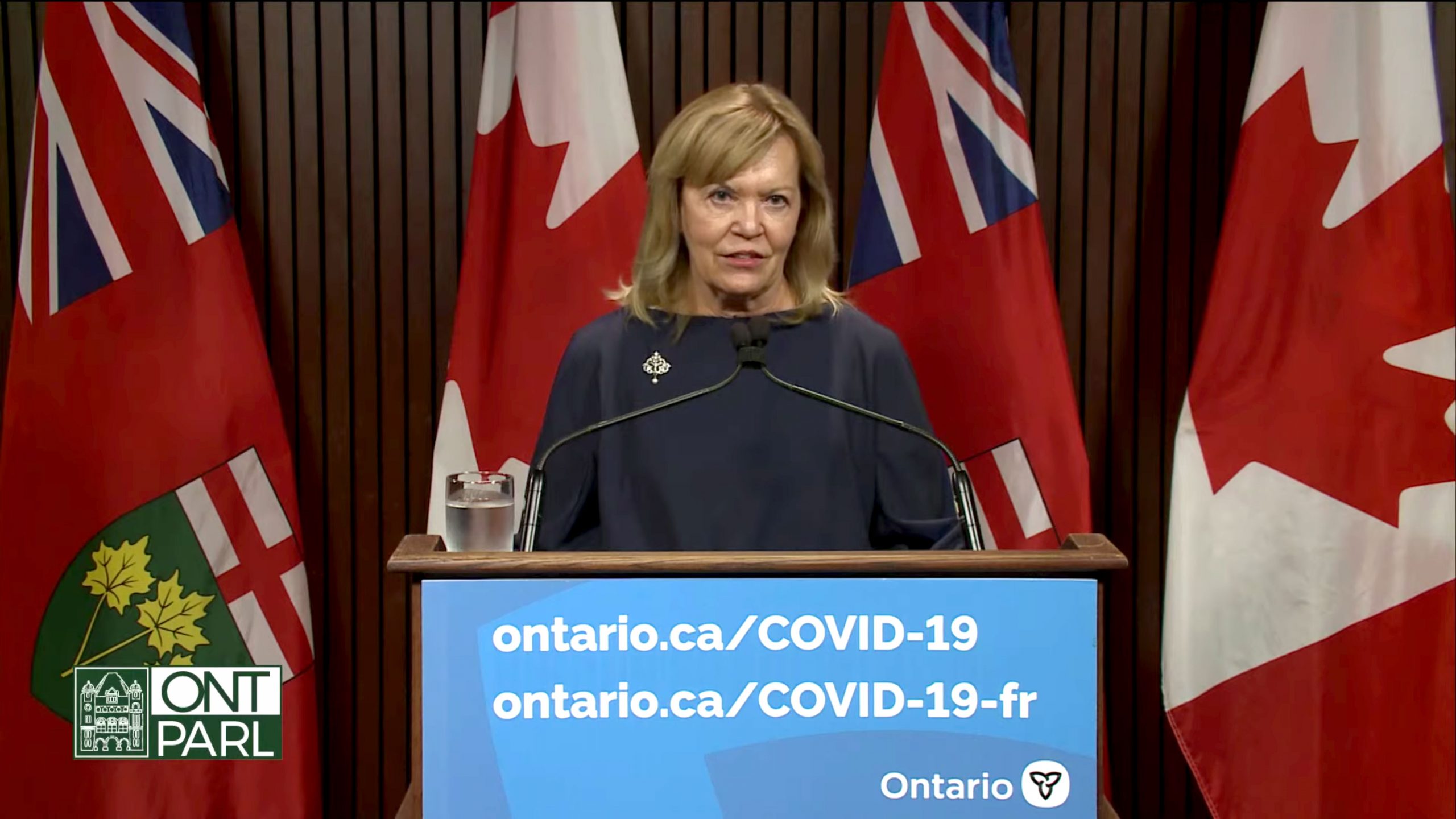TORONTO – The Ontario government has released further guidance on the province’s proof of vaccination program, one week before COVID-19 vaccines become mandatory for certain non-essential businesses.
In a Sept. 14 announcement, Deputy Premier and health minister Christine Elliott, alongside digital government associate minister Kaleed Rasheed and Chief Medical Officer of Health Dr. Kieran Moore, fielded questions on the province’s proof of vaccination program, including the certification process and what exemptions will look like.
Starting Sept. 22, proof of vaccination will be required to enter restaurants (not including outdoor patios), nightclubs, meeting/event spaces, sports and fitness settings, sporting events, gaming establishments like casinos, concert halls, theatres, strip clubs, and indoor racing venues.
Under the program, patrons and customers will need to either print or download their second dose receipt from the government website until a digitized certificate becomes available Oct. 22.
Through the “enhanced” certificate, Rasheed explained, businesses will be able to download a free app to scan and verify QR codes following the October date.
“It will make it easier, more secure, and convenient to show you have been vaccinated when you need to,” he explained.
“Your information will never be stored on our app. It will only show the minimum of information needed to confirm an individual has been fully vaccinated.”
Rasheed added the QR code will eventually allow for medical exemptions to be embedded into the system as well. He also noted people can continue to use the print version after Oct. 22 if they choose.
As part of the program, employees are being asked to match the name and date of birth listed on the vaccination receipt with the information on the person’s ID. The receipt must include the individual’s second dose, and the date of administration must be verified as at least 14 days prior.
Examples of identification that can be used to confirm vaccine status include a birth certificate, a citizenship card, a driver’s license, a government issued identification card, including a health card, an Indian Status Card or Indigenous Membership Card and a passport or a permanent resident card. A photo is not required.
Exemptions
Those with proven medical exemptions and those under the age of 12 are exempt from having to prove vaccination status to enter the selected settings.
An individual entering an indoor setting where vaccination is mandatory will not be required to provide proof of vaccination if it’s solely to use a washroom, pay for an order or to access an outdoor area that may only be accessed through an indoor route.
“It really depends upon the risk associated with an individual,” Moore explained of unvaccinated individuals entering businesses for short periods of time.
“It’s also based on some assumptions that it will be 15 minutes or less, and that you’ll be masked in that environment.”
Customers will not need to be fully vaccinated to make a retail purchase or place a pickup order.
In addition, while indoor sport spectators need to provide proof of vaccination, those under the age of 18 “actively participating in an organized sport” do not.
Those attending a wedding ceremony or funeral service but not attending the associated social gathering (reception), will not be required to show proof of vaccination.
During the announcement, Elliott explained that in the event of harassment or threats of violence should individuals reject the new policy, law enforcement should be contacted.
“We want to make sure everyone conforms to these rules,” she explained. “But if anyone feels threatened, we do have the facilities available for people to seek help.
“We have let people know what the requirements are well in advance of the changes being made,” she continued. “People understand what the rules are and we’re simply expecting people follow them.”
Province expands third dose eligibility
Moore announced the province will be expanding third dose eligibility for additional vulnerable populations, following recommendations made by Canada’s National Advisory Committee on Immunization.
Groups eligible for a third dose include those undergoing active treatment for tumors, those who are in receipt of solid-organ transplant and taking immunosuppressive therapy, individuals with severe or moderate primary immunodeficiency and individuals with stage three or advanced untreated HIV infection, among others.
For a full list of third dose eligibility requirements, visit news.ontario.ca/en/backgrounder/1000751/ontarios-updated-covid-19-vaccination-eligibility.




